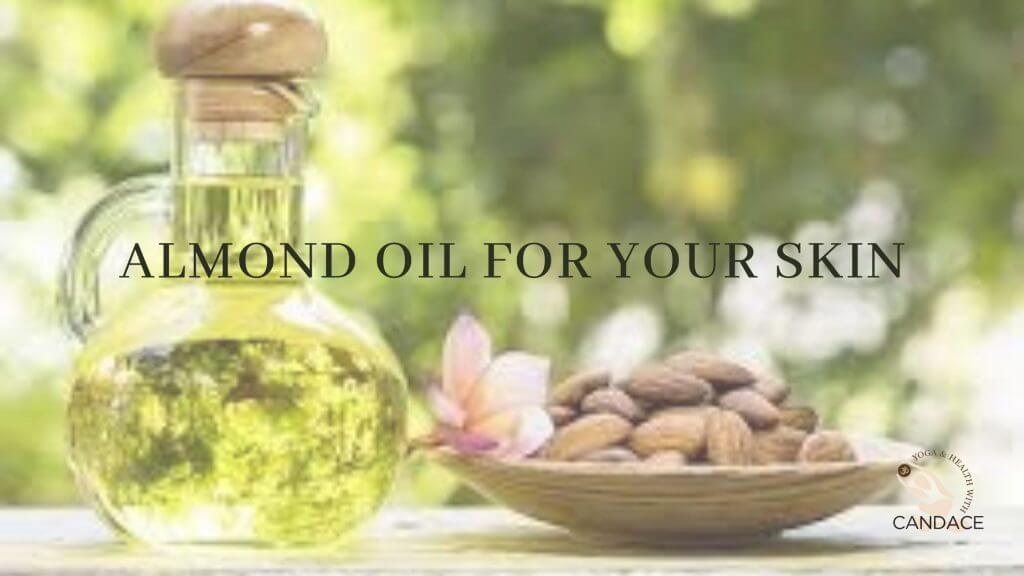Almond Oil for Your Skin
Almonds are not just for snacking on or adding to Buddha bowls, salads and other healthy meals. This incredible nut oil may also benefit your skin in many ways. Ancient Chinese and Ayurvedic practices have used almond oil for centuries to help soothe and soften the skin and to treat minor wounds and cuts. Today, it is quite common to find almond oil in a wide variety of cosmetic and beauty products.
There are two types of almond oil: sweet and bitter. Sweet almond oil is the kind that’s better suited to your skin. It contains the following nutrients:
Vitamin A: The retinol in vitamin A has the ability to stimulate the production of new skin cells and smooth fine lines.
Vitamin E: This nutrient has antioxidant properties that may help prevent cell damage and help reduce ultraviolet (UV) damage to the skin Trusted Source caused by the sun.
Omega-3 fatty acids: These nutrients may help prevent premature aging and safeguard against sun damage.
Zinc: This is an essential nutrient for healing acne or other facial scars. Zinc is also affective for acne and other skin conditions when taken orally as a supplement.
What are the benefits of using almond oil on your face?
Although there’s plenty of research confirming the health benefits as a result of eating almonds, there is less scientific evidence on the benefits of using almond oil on the skin.
Applying almond oil to the skin may have the following benefits:
Reduces puffiness and under-eye circles, almond oil is an anti-inflammatory and it may help ease swelling of the skin.
Improves complexion and skin tone, due to its emollient properties almond oil has the potential to improve both complexion and skin tone.
Treats dry skin, almond oil has been used for centuries to treat dry skin conditions, including eczema and psoriasis.
Improves acne, the oil’s fatty acid content may help dissolve excess oil on the skin, while the retinoid in the oil may reduce the appearance of acne and improve cell turnover.
Helps reverse sun damage; studies have shown that vitamin E, one of the nutrients in almond oil, may help reduce damage to the skin caused by UV exposure.
Reduces the appearance of scars, in ancient Chinese and Ayurvedic medicine, almond oil was used to reduce scarring and the vitamin E content may contribute to helping smooth the skin.
Reduces the appearance of stretch marks, according to a 2016 study, sweet almond oil may be an effective treatment for preventing and reducing stretch marks.
Is it safe to use almond oil on your skin?
Almond oil is generally considered safe to use on your skin. However, there are some safety precautions to keep in mind. If you’re allergic to nuts, avoid using almond oil on your skin. If you have never used almond oil on your skin before, do a patch test before applying to your face. You can do a patch test by dabbing a small amount of almond oil on the inside of your wrist or elbow and if there are no signs of redness, itching, burning, or swelling within a few hours, the oil is likely safe to use on your skin.
How to use almond oil for your skin and my personal experience
There are a few different ways to use almond oil on your face such as cleansing, moisturizer or as a night serum. I personally use almond oil in the evening after a hot bath or shower. Once I have washed my face with my preferred cleanser, I use almond oil on my chest, neck and face and I apply it with a gentle upward motion. I have personally found that it also works well as an eye cream/treatment and I apply some extra oil to my temples in a gentle circular motion and onto the bone just below my eye, (avoid applying directly under your eye). Everyone’s skin is different but, as someone who has struggled for most of my adult life with breakouts and extremely sensitive skin, I only wish I had found out about almond oil (as an option for my face) sooner. Almond oil has replaced other expensive creams and treatments that I was using on my skin and within a few days, I experienced incredible results.
I cannot confirm that this will naturally work for everyone who tries it however, because its natural, affordable and has research to prove its possible, I would definitely say it is worth a try. I really hope it works for you to. Almond oil is known as carrier oil, which means it has the ability to carry other essential oils more deeply into the skin. You can mix almond oil with an essential oil that’s known to benefit the skin, like rosehip, lavender, rose geranium, or lemon oil. Be sure to patch test the essential oil on the inside of your elbow or wrist before applying to your face. Almond oil has been used for thousands of years to soothe, soften, and repair the skin. Due to its anti-inflammatory and emollient properties, as well as its high nutrient content, it’s still a popular skin care ingredient today. Almond oil, like coconut oil can also be used as a makeup remover. In fact, almond oil is a common ingredient in many natural makeup remover products.

